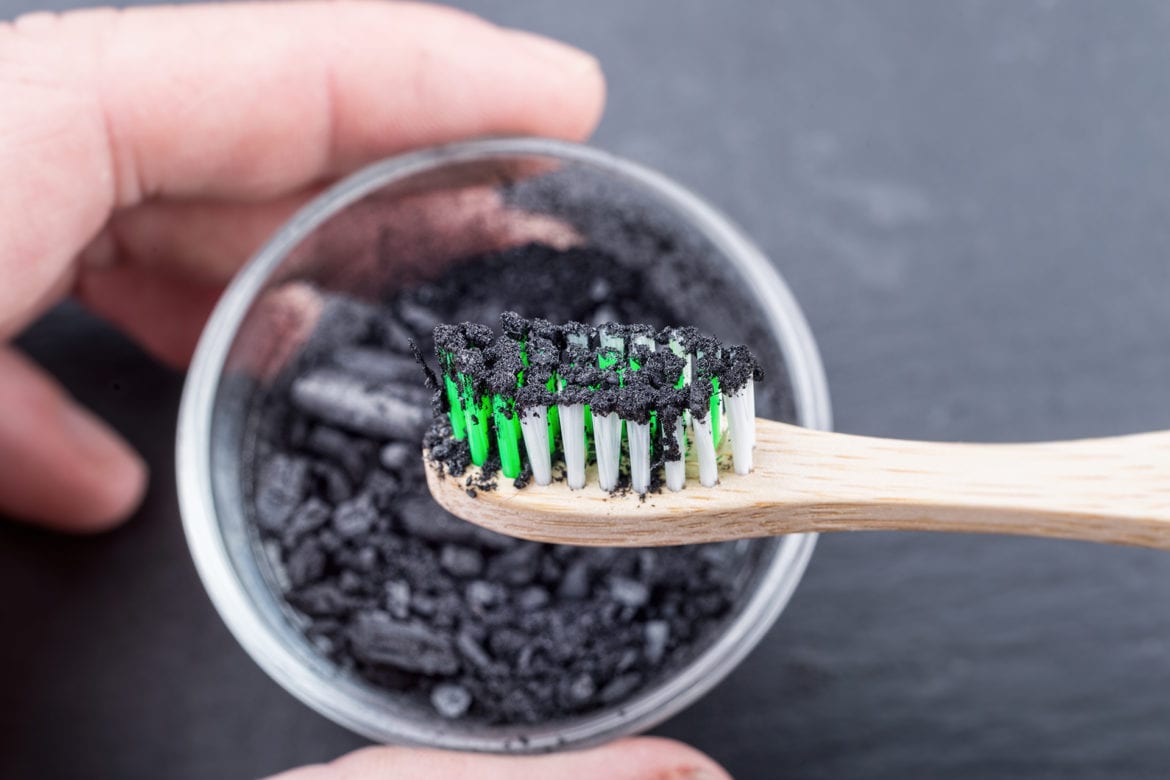Can charcoal toothpaste really whiten your teeth? Experts explain why the popular product can pose some risks to your oral health.
Instead of the white foam most of us normally produce when brushing our teeth, activated charcoal toothpastes coat teeth (temporarily) in a dusky slurry. Yet despite their dark hues, many companies claim the products whiten teeth.
Charcoal toothpastes are increasingly common, available not just from startup companies such as Evo and Hello but also from industry stalwarts like Colgate and Oral-B. Evidence on whether they can whiten teeth is mixed, however, and they have the potential to do more harm than good.
Here, we explain the claims of charcoal toothpaste products, how well they actually work, and the potential unintended effects.
What Is Activated Charcoal?
Activated charcoal is similar to regular cooking charcoal, but it has been heat-treated to make it extra-porous. This, in turn, makes it highly absorbent and able to trap other chemicals. Under limited circumstances, it is sometimes used in emergency medicine to treat acute cases of poisoning or overdose.
Charcoal has a long history of being used to clean teeth, thanks to its abrasiveness. According to a 2019 British Dental Journal analysis, some modern toothpastes’ labels claim that the absorbent charcoal works by binding to plaque and stains on teeth, which are then brushed away.
Does Charcoal Toothpaste Support Oral Health?
Charcoal toothpastes benefit from something of a health halo, in that people think of charcoal as a more “natural” ingredient.
“People want to believe that it’s a great alternative to toothpaste,” says Edmond R. Hewlett, DDS, consumer adviser for the American Dental Association and a professor at the UCLA School of Dentistry in Los Angeles. Unfortunately, however, “there’s no compelling evidence at all of any advantage of using charcoal toothpaste,” Hewlett says.
In the British Dental Journal paper, for example, the researchers didn’t find evidence to back up many of the claims that marketers of charcoal toothpaste made about improving oral health. In fact, many toothpastes made with charcoal do not contain fluoride, which Hewlett says has more robust evidence supporting its benefit to oral health than any other toothpaste ingredient.
“If you’re using charcoal toothpaste and there’s no fluoride, you’re missing out on the enormous benefits of using fluoride to prevent cavities,” he says.
And the authors of the paper say that even if a charcoal toothpaste does contain fluoride, the presence of the absorbent charcoal might trap the fluoride, making it less available to protect and strengthen teeth.
Can Charcoal Toothpaste Whiten Teeth?
As with other whitening toothpastes, charcoal toothpastes cannot very effectively bleach teeth to brighten them, as dentists can do with in-office bleaching treatments.
Instead, whitening toothpastes mainly work by scraping away or preventing surface stains—at least in theory. In practice, the efficacy of whitening toothpastes in general isn’t completely clear, according to a 2019 analysis.
Still, charcoal toothpastes are generally abrasive, so they do at least have the potential to scrape off stains from teeth, or to prevent them from forming in the first place, according to the British Dental Journal paper.

